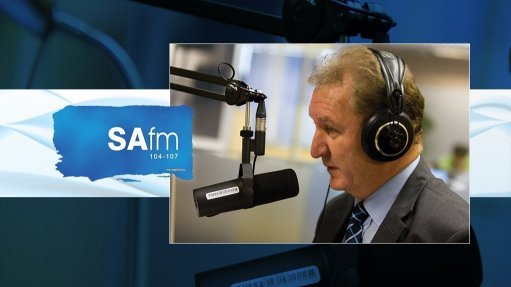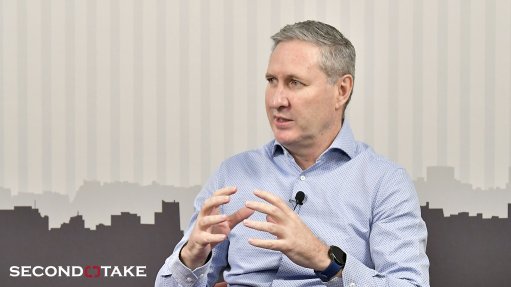Zimbabwe aims to use FDI to develop a competitive economy by 2030
Zimbabwe held an investment conference on May 2 and 3 in South Africa during which its officials explained that the country of 16-million people wants to use local and international investments into key sectors of its economy to further develop the country by 2030.
This objective is encapsulated in its National Strategy Vision 2030 and, to attract investors, the country has entered into negotiations to settle compensation claims linked to land seizures from farmers two decades ago, as well as to settle its international debt default to tap into international finance markets.
This is especially important because the country wants to leverage its agricultural and horticultural potential as one of the key sectors through which it wants to drive development.
"We are dealing with the property rights issue around land and a conversation with farmers is under way. We have a $3.5-billion bond programme in place to compensate farmers. We are also strengthening the 99-year lease framework for the use of land in Zimbabwe," said Zimbabwe Finance, Economic Development and Investment Promotion Minister Professor Mthuli Ncube.
"We want to ensure that leases are bankable, valorisable and transferable. This is critical to ensure banks extend credit to the agricultural sector. By year-end, we will have a bankable 99-year lease process in place," he told delegates.
The objective of the National Strategy Vision 2030 was to marshal collective national efforts to achieve inclusive economic growth, social transformation and, most importantly, provide a high quality of life for all people by 2030, said Ambassador of Zimbabwe to South Africa David Hamadziripi.
"The implementation of the vision offers opportunities for domestic and foreign investors to exploit, and there are significant opportunities in agriculture, mining and mineral beneficiation, manufacturing, healthcare, tourism, infrastructure and services, among others," he said.
The investment summit brought together government officials, business captains, diplomats and development partners.
Jointly, they could create much-needed momentum in the country's efforts to create an environment that was conducive to foreign and domestic investments and change the country's fortunes for the better, said South African Development Community (SADC) executive secretary Elias Magosi.
"It is important to note the presence of business leaders at this summit. There can be no meaningful economic development and regional integration in the SADC without the private sector driving it. Therefore, it is the right step to bring them into investment discussions early.
"Similarly, the presence of the diplomatic community and development partners represents the commitment to enhance partnerships in the journey to achieve economic transformation," he said.
Zimbabwe ruling party Zanu-PF secretary for business development Elifasi Mashaba echoed these sentiments, noting that, while politics and business were intertwined as political decisions affected businesses and businesses lobby government for support, "there will be no economic development if government fails to partner with business to drive economic growth and stimulate innovation".
FINANCIAL POSITION
Zimbabwe had been growing its real GDP year-on-year since 2021. This was owing to the quality of the policies put in place for macroeconomic, fiscal and monetary management and sectoral support, said Ncube.
"We have maintained fiscal prudence since 2019, from when Zimbabwe has been able to maintain a budget deficit of no more than 2% of GDP. Our monetary policy has also remained tight and we have introduced a new currency [the Zimbabwe Gold or Zig].
"It is necessary to have a domestic currency, otherwise you only have fiscal policy but not monetary policy. By having monetary and fiscal policy tools, we can control the interest rate and drip-feed the economy as it grows."
The investment drive was focused on developing businesses, industries and value chains within Zimbabwe, and becoming a competitive, exporting mid-sized economy, he explained.
AGRICULTURE AND HORTICULTURE
Ncube highlighted a range of opportunities across sectors in Zimbabwe, including in horticulture.
"We have coffee farmers in the eastern parts of the country. Investment is required in this sector, with something as simple as a washing plant to wash the beans adding up to 30% value prior to export, while the sector is also being encouraged to move into roasting and other beneficiation," he noted.
Additionally, Zimbabwe has around 10 000 dams, about 33-million hectares of arable land and has the capacity to irrigate about two-million hectares. Currently, the country only irrigates 217 000 ha, and has plans to develop this to 350 000 ha by 2028.
Therefore, there was a need for, and opportunities for investment in, irrigation, said Zimbabwe Ministry of Lands, Agriculture, Fisheries, Water and Rural Resettlement agricultural economist Ability Mufunda.
"We are also moving to mechanisation, and the country has a need for 40 000 tractors. We currently have 14 000 tractors, so there is a need to invest in these areas to ensure farmers are well equipped to improve food security and self-sufficiency in the country," he illustrated.
There was also a need to modernise and automate the country's storage silos and facilities, as well as to build new ones, Mufunda said.
There is a big project underway in the country with a large Swiss supplier of agriculture systems. The aim of the partnership with private players is to transform all silos to modern silos wherein grain can be stored for up to five years.
There was wastage currently as not all of the harvest could be stored. There was also an opportunity to integrate the storage facilities into food banks, said investment promotion agency Zimbabwe Investment and Development Agency (ZIDA) CEO Tafadzwa Chinamo.
MINING
Further, the country's mining industry had grown since 2017, and there were significant opportunities in lithium, gold, platinum-group metals, nickel, coal, copper, diamonds and manganese, as well as opportunities in iron and steel production, Ncube noted.
"We are insisting that investors into the mining sector invest in beneficiation and support local communities around their operations. At least 1% of revenue must be used to develop local communities," he said.
The mining sector contributed 30% to GDP and accounted for 60% of export receipts in 2023, and the sector could catapult Zimbabwe to becoming a mid-sized economy by 2030, said Zimbabwe Mines and Mining Development Deputy Minister Polite Kambamura.
"Under the national development strategy, the beneficiation and value addition of minerals is important to attain the goals of the 2030 vision. There are many opportunities for setting up and operating beneficiation facilities in the country.
"Further, owing to the exponential growth in the sector, the needs of the sector have also grown, necessitating innovative measures to support access to finances. Addressing the inadequate provision of infrastructure, including power and roads, will be crucial to enhancing the efficiency of mining projects," he informed delegates.
Further, in 2022, Zimbabwe signed a memorandum of understanding with platinum miner Zimplats to develop four key projects, including the redevelopment of a mine and building three concentrators.
"The base metals refinery is currently 90% complete, and the project will also have a 38 MW furnace and a sulphuric acid plant. After the commitment of Zimplats, PGM producers have also committed to adding value and beneficiating the metal as part of the first phase of the national development strategy.
"The second Republic aims to see investments in the mining sector grow exponentially, and this is being realised," he said.
ENERGY
In the energy space, Zimbabwe had put in place a framework to support independent power producers. It had introduced an economic tariff of 16.88c/kWh for solar, and investors report projects being profitable at 9c/kWh, so the tariff should provide comfort to investors, Ncube said.
The government also offered a guarantee on power purchase agreements, he added.
However, there was a need for about $2-billion in investments to upgrade the country's power transmission infrastructure. While investment in transmission infrastructure is typically left to the public sector, Zimbabwe is encouraging investors to look at investing in power transmission infrastructure, which could be profitable, he said.
Investment in power transmission infrastructure would also strengthen the regional Southern African Power Pool, which trades energy through Zimbabwe and has its head office in Harare, added Ncube.
"There are also opportunities in the railway space. We are looking for investments because, if we can reduce the costs of logistics in the SADC region, our products will be more competitive," he told summit delegates.
Similarly, the private sector has built the road from Bulawayo to Victoria Falls on a concession basis with the company collecting toll fees to fund the investment.
INVESTOR SUPPORT
Investors could secure various incentives through the Zimbabwe Finance, Economic Development and Investment Promotion Ministry, or through the Zimbabwe Investment and Development Agency, he pointed out.
For example, investors that had build-operate-transfer arrangements could enjoy a tax holiday of up to five years and, if companies increased their export revenues, their corporate tax rate could drop from 20% to 15%, which was part of rewarding export performance through tax incentives, Ncube said.
"We also provide a value-added tax (VAT) deferment facility for importers of industrial equipment, under which importers can defer VAT for up to six months to enable their cashflows to recover," he said.
The country was also offering duty rebates on most capital equipment imported into the country for new businesses, and did not impose capital gains taxes, meaning it was easy for investors to take their proceeds out of the market, he added.
"The investment conference's objective is to help drive investment in all sectors of the economy, position Zimbabwe as a profitable investment destination and support the National Strategy Vision goal of becoming a competitive, mid-sized economy by 2030," Ncube said.
Comments
Press Office
Announcements
What's On
Subscribe to improve your user experience...
Option 1 (equivalent of R125 a month):
Receive a weekly copy of Creamer Media's Engineering News & Mining Weekly magazine
(print copy for those in South Africa and e-magazine for those outside of South Africa)
Receive daily email newsletters
Access to full search results
Access archive of magazine back copies
Access to Projects in Progress
Access to ONE Research Report of your choice in PDF format
Option 2 (equivalent of R375 a month):
All benefits from Option 1
PLUS
Access to Creamer Media's Research Channel Africa for ALL Research Reports, in PDF format, on various industrial and mining sectors
including Electricity; Water; Energy Transition; Hydrogen; Roads, Rail and Ports; Coal; Gold; Platinum; Battery Metals; etc.
Already a subscriber?
Forgotten your password?
Receive weekly copy of Creamer Media's Engineering News & Mining Weekly magazine (print copy for those in South Africa and e-magazine for those outside of South Africa)
➕
Recieve daily email newsletters
➕
Access to full search results
➕
Access archive of magazine back copies
➕
Access to Projects in Progress
➕
Access to ONE Research Report of your choice in PDF format
RESEARCH CHANNEL AFRICA
R4500 (equivalent of R375 a month)
SUBSCRIBEAll benefits from Option 1
➕
Access to Creamer Media's Research Channel Africa for ALL Research Reports on various industrial and mining sectors, in PDF format, including on:
Electricity
➕
Water
➕
Energy Transition
➕
Hydrogen
➕
Roads, Rail and Ports
➕
Coal
➕
Gold
➕
Platinum
➕
Battery Metals
➕
etc.
Receive all benefits from Option 1 or Option 2 delivered to numerous people at your company
➕
Multiple User names and Passwords for simultaneous log-ins
➕
Intranet integration access to all in your organisation
















